In the Midst of Two Epidemics: MCSJ Men’s Forum Stands Against Gender Based Violence in the Context of COVID-19

Nonzuzo Mbokazi (Researcher, UCT), Ndumiso Mzazi (MCSJ), Isaac Mangwana (MCSJ), Myrna van Pinxteren (Resarcher, UCT), Christopher Colvin (Researcher, UCT)
Editorial Note: In this piece, Nonzuzo Mbokazi, Ndumiso Mzazi, Isaac Mangwana, Myrna van Pinxteren and Christopher Colvin share reflections about the surge of violence against women and children during the COVID 19 epidemic; in tribute of Women’s Month and Women’s Day in South Africa.
Gender-based violence (GBV) is an international problem and is particularly debilitating in South Africa. GBV disproportionately affects women and girls in South Africa and is a systemic problem rooted in institutions, culture and tradition in South Africa.1 While there are different definitions of GBV, this article defines it as the “violence that occurs as a result of the normative role expectations associated with each gender, along with the unequal power relationships between […] genders, within the context of a specific society”.1 It is also important to note that “GBV can be physical, sexual, emotional, financial or structural, and can be perpetrated by intimate partners, acquaintances, strangers and institutions. Most acts of interpersonal gender-based violence are committed by men against women, and the man perpetrating the violence is often known by the woman, such as a partner or family member”.2 This article highlights the effect of COVID-19 on the surge in GBV and the community response spearheaded by the Men’s Forum, a collective of men concerned about health, wellness and violence in the community of Gugulethu.
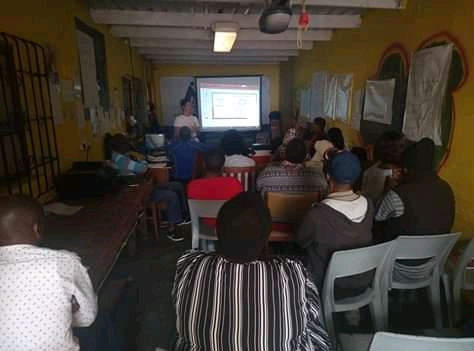
The crisis of GBV is not a new phenomenon in the South African context and to respond to the gender-based violence and femicide crisis, President Cyril Ramaphosa announced an Emergency Response Plan to combat gender-based violence and femicide in September 2019.4 The government allocated R1.6 billion to implement the plan until the end of 2019.4 The plan includes carious departments and facilitates the allocated budgets to the various departments to facilitate clearing GBV-related backlogs at forensic laboratories, especially sexual assault; hiring of additional staff for sexual offences in family and children protection centres as well setting up as sexual offences investigation units; the procurements of collection kits and immediate roll out plans to police, magistrates, prosecutors and policy makers to be victim centric and provide survivor-focused services.4
The emergency of the rise in GBV numbers forced the states to increase action to combat GBV. Additional to the Emergency Response plan, a National Strategic Plan (NSP) has been adopted in South Africa as an effort against gender- based violence4, particularly during the COVID-19 epidemic. In these challenging times, the Department of Social Development has been working tirelessly to ensure that survivors of gender-based violence have access to support and services, including the GBV hotline, shelters and centres providing support to victims of sexual violence. There is also a unique case of a men’s group and organisations standing up for the rights of women. Sonke Gender Justice is probably the most prominent organisation in South Africa doing this work; but there are also community organisations taking a stand against GBV.
In addition to the government’s response to GBV, community organisations are also actively involved trying to reduce gender inequalities and GBV in the community. The Men’s Forum, part of MCSJ is committed to raising consciousness among men in Gugulethu and tries to create a space where men can gather and confront harmful masculine behaviours among men in the community. One of the activities which had a significant impact on Men’s Forum members was their exposure to the 'Just Men' play at the Baxter Theatre, which Men’s Forum members went to see in August 2019. The play tackled an array of socio-economic circumstances which comprise toxic masculinity and lead to the violence men unleash on the women and children in their lives. The play inspired the Men’s Forum to hold dialogues with men to tackle the issues brought to the surface by the play.
The Men’s Forum campaign was further fuelled by another GBV connected incident that shook the country was the rape and murder of Uyinene Mrwetyana. Although her case was one of many, her murder triggered an outcry and shift in the country. Responding to the call, the Men’s Forum planned a Men’s Forum Summit and Men’s Forum protest against GBV. However, these events were rescheduled because of the pandemic and pencilled in for August 2020. Unfortunately, the COVID-19 epidemic has once again derailed these plans, but the Men’s Forum stands firm in its sentiments against GBV and its urge to stand up for the rights of women and children in our communities. This is succinctly captured by Men’s Forum coordinator and facilitator when he says:
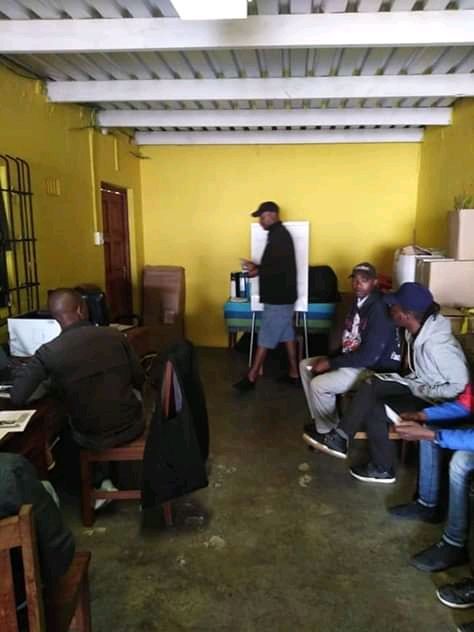
“The main issue that we are really concerned about is the high rate of men and boys who are continuously beating, raping and killing young girls and women. We are not happy with this problem; we believe this is a serious problem that needs everyone’s attention to make sure it ends. So we want to shout out to all of those men and boys who are doing this serious violation to stop because if you are a real men you know what is right or wrong but still you are doing it so we want to tell you that the time has come to correct your behaviour. You must be the one protecting the very same person that you are violating. Stop and think. Our message is very clear - please seek help to deal with the problems you are facing. Remember that you have a duty to be a good partner and example to children especially young girls”.
Similarly, a participant of the Men’s Forum supported these sentiments saying:
“I work in the health services and we are seeing so many cases of women coming into the clinic, injured by their partners. I was just assisting a young girl injured severely on her face. She told me her boyfriend beat her because she wanted to go home. We need to mobilise as men to make men who are abusers understand that violence against women is wrong. As men, we need to mobilise and cleanse our name”.
The Men’s Forum standpoint is clear. Concerted efforts need to be made to end the unjustifiable brutality of violence by men and against women and children.
Despite the Men’s Forum calendar being disrupted, the group continues to work on alternative ways of communicating their message, including Zoom and Whatsapp meetings. During this time especially, they want to stay in constant communication; even when they cannot organise physical gatherings or having to limit them to 20 attendees. A main activity that the Men’s Forum is working towards is hosting a stakeholders meeting with members from the government, police force and National Prosecuting Authorities. The plan is for the meeting to be televised and radio broadcasted for public participation.
Men’s Forum’s stance against GBV ensures once again that we can never doubt that a group of committed and thoughtful individuals can make a change in their communities, and that it is the only thing that will. We need individuals, including men, to take a stand and usher in a state of consciousness to men – that violence against anyone is unjustified. It is unfortunate that during this disastrous epidemic, instead of us looking after each other as part of our shared humanity, more attention is needed to combat the surge of GBV. However, as was put by our President about the two epidemics South Africa faces: “Although very different in their nature and cause, they can both be overcome – if we work together, if we each take personal responsibility for our actions and if we each take care of each other”.
References
1. Bloom, S.S. 2008. “Violence Against Women and Girls: A Compendium of Monitoring and Evaluation Indicators.” Carolina Population Center, MEASURE Evaluation, Chapel Hill, North Carolina. https://www.measureevaluation.org/resources/publications/ms-08-30
2. Sultana, A. 2010. “Patriarchy and Women’s Subordination: A Theoretical Analysis, The Arts Faculty Journal, July 2010-June 2011”. http://www.bdresearch.org/home/attachments/article/nArt/A5_12929-47213-1-PB.pdf
3. Oliver, G. 2020. “Six ways Covid 19 is changing South Africa”. https://www.thenewhumanitarian.org/feature/2020/05/28/South-Africa-coronavirus-positive-changes
4. South African Government News Agency. “R 1,6bn allocated for GBV Emergency Action Plan”. https://sanews.gov.za/south-africa/r16bn-allocated-gbv-emergency-action-plan
5. Republic of South Africa. 2020. “National Strategic Plan on Gender Based Violence & Femicide 2020-2030”. https://www.samrc.ac.za/sites/default/files/files/2020-05-11/NSPGenderBasedVF.pdf
Author Biographies
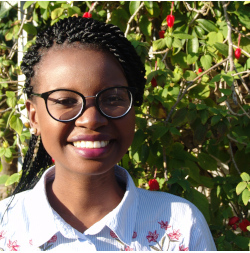
Nonzuzo Mbokazi is a Research Administrator for the iALARM Project, Division of Social and Behavioural Sciences. She recently completed her Ph.D. on childcare state policy in sociology.
Email: nonzuzo.mbokazi@uct.ac.za
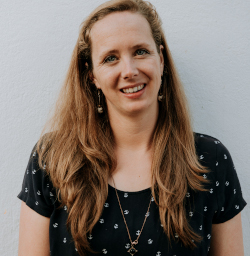
Myrna van Pinxteren holds a MSc in Social Anthropology and is a PhD candidate in the Division. As a qualified journalist and anthropologist, Myrna's research interests are focused around the use of communication and information to strengthen health care and the practical use of medical anthropology in everyday life.

Christopher Colvin holds a PhD in socio-cultural anthropology from the University of Virginia and a Masters in Public Health from UCT in epidemiology. His research interests include HIV and masculinity; health activism and community health governance; trauma, subjectivity and narrative; and the interface between communities and health systems in the context of HIV/AIDS, TB and maternal and child health.
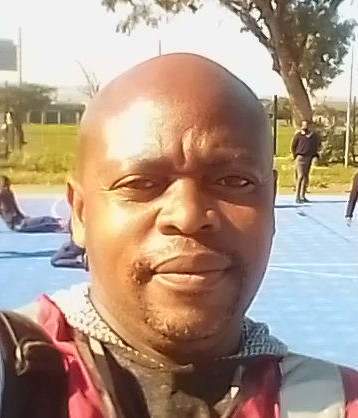
Ndumiso Mzazi is a Men’s Forum Coordinator for the Movement of Change and Social Justice (MCSJ). He is extremely passionate about men’s health and wellness.
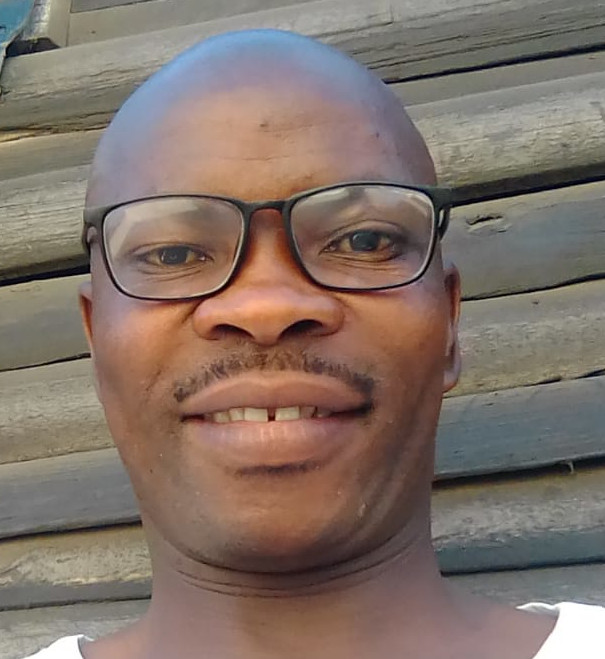
Isaac Mangwana is the Men's Forum Coordinator for the Movement for Change and Social Justice (MCSJ).